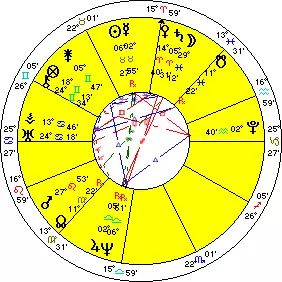 Image: The stars and the stock market
Image: The stars and the stock market
Can astrology really predict the movement of the stock market? Skeptics may scoff, but a closer look at the historical correlation between stock prices and planetary motion suggests that there may be something to it. While astrology should not be regarded as a foolproof method, it can offer insights that may help investors navigate the market with a bit more confidence. In this article, we will explore the essentials of financial astrology and how it can be used to predict stock market trends.
Understanding the Astrological Factors
Astrology involves working with a multitude of variables, including planets, aspects, houses, and constellations. These elements can be correlated with market trends to identify patterns and potential price movements. However, it's essential to note that astrology is not a one-size-fits-all solution. The accuracy of predictions largely depends on the quality of astrological alignments and transits.
Utilizing Astrology for Stock Market Investing
There are several strategies for incorporating astrology into stock market investing. The first step is to obtain the first trade data of a stock or currency and cast a horoscope for that specific time and place. This chart is then analyzed in conjunction with transits, progressions, and dashas to determine the likely price movements of the stock.
Financial astrology follows a basic rule: favorable planetary alignments during the dasha periods of well-placed planets tend to yield price increases, while negative aspects from unfavorable planets can push prices down. However, it's crucial to exercise caution and avoid making predictions based on conflicting or ambiguous data.
The Role of Multiple Factors
Astrological analysis requires a holistic approach. It's not enough to rely on a single planetary alignment to predict stock market outcomes. Multiple factors must align for a particular situation to occur. For example, a favorable pattern like the conjunction of benefic Jupiter with the natal Sun may be necessary but not sufficient for price increases. Negative influences, such as close aspects from malefic planets or transits through malefic houses, must also be taken into account.
Assessing Bull and Bear Markets
To assess the conditions for a bull or bear market, it's necessary to evaluate several factors simultaneously. Dasha lords, transits, progressed configurations, and solar/lunar return charts provide insights into market direction. By examining these influences and overlaying them with the natal chart, an astrologer can better discern prevailing market sentiments and turning points.
The New York Stock Exchange Horoscope
One of the most important charts in financial astrology is the horoscope of the New York Stock Exchange (NYSE). Founded on May 17, 1792, the NYSE's chart reflects major price movements and demonstrates the dynamic nature of bull and bear markets. The chart's alignment of Uranus and Venus signifies rapid movement of money on the trading floor.
 Image: The horoscope of the New York Stock Exchange
Image: The horoscope of the New York Stock Exchange
By analyzing the planetary influences at the time of significant market events, like the October 1987 stock market crash, astrologers can gain insights into impending market trends. For example, during the crash, Mercury's dasha, despite being a natural benefic, exhibited negative indications—being closely combusted and forming a tight square with Pluto.
The Vulnerability of Mercury Periods
Mercury dashas, in general, do not correlate with higher prices in the stock market. Historical data shows that Mercury periods often fall below the average annual rate of return for stocks. However, other planets like Jupiter and the Sun can offset Mercury's bearish tendencies.
Conclusion
While financial astrology may not be a foolproof method for stock market predictions, it offers unique insights that can assist investors in navigating the market. By integrating multiple astrological factors and analyzing historical charts, astrologers can identify critical time windows that have a higher likelihood of market ups and downs. Understanding these astrological indicators can be a valuable tool for traders seeking an edge in the stock market.
Disclaimer: This article is for informational purposes only and should not be considered financial advice. Always conduct thorough research and consult with a professional financial advisor before making any investment decisions.

















